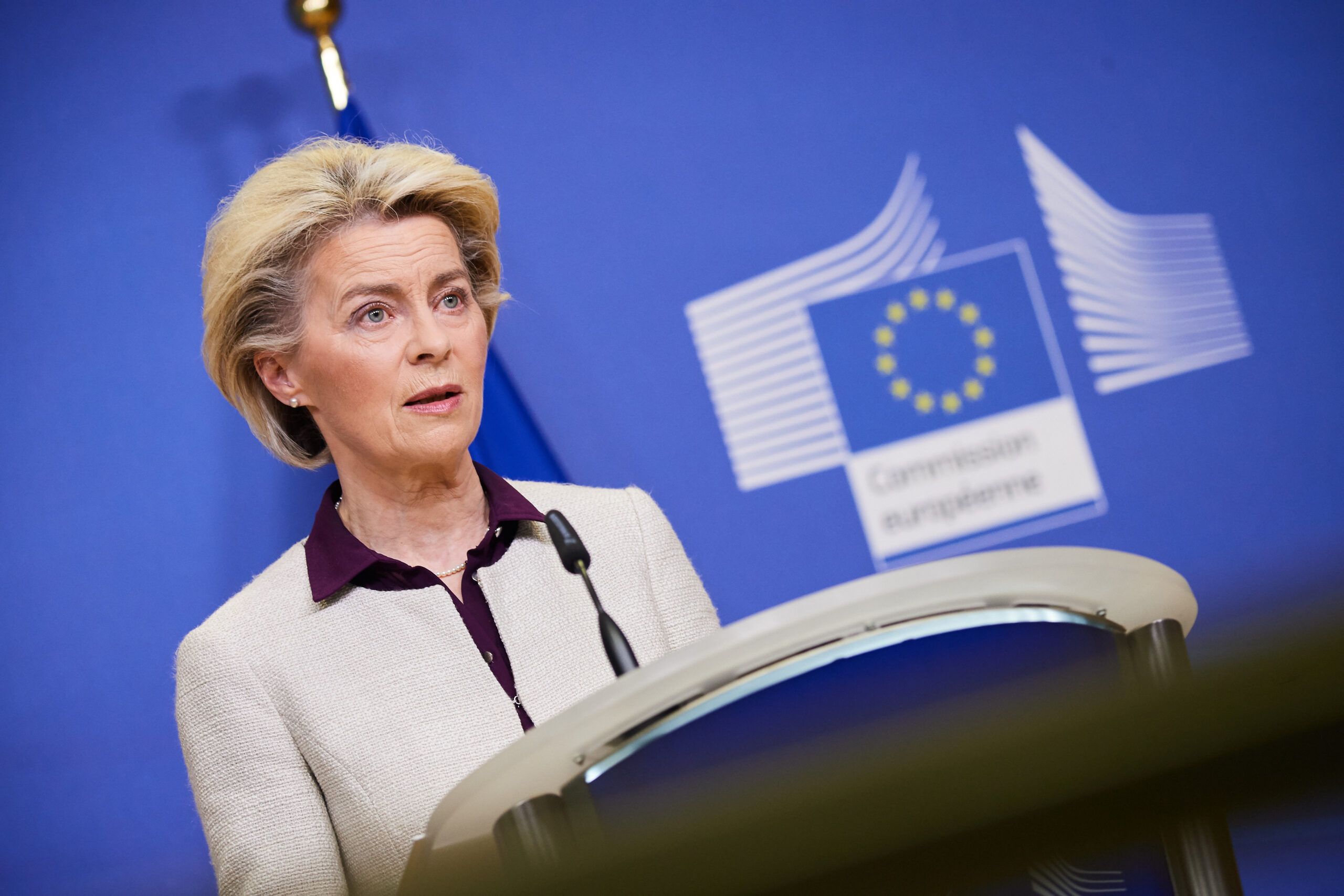The euro surged to a nearly five-month high against the US dollar following President Trump’s tariff announcement on Liberation Day, when he announced a 20 per cent tariff on the European Union.
Rising by 0.5 per cent, the euro reaching $1.0915, close to its highest value in almost half a year.
This comes as Trump declared that the US will add a minimum 10 per cent tax on imports from all countries, with even higher taxes on some nations – especially China, the EU, and Vietnam.
China’s tariffs could go up to 54 per cent (from an already high 20 per cent), while the EU could face 20 per cent extra tariffs and Vietnam could see a whopping 46 per cent extra tariffs.
The EU Commission’s President Ursula von der Leyen slammed the decision and vowed to retaliate, saying the EU was “prepared to respond.”
Von der Layen warned that the move would have dire decisions for consumers and businesses that have prospered since World War II, and result in profound disruptions to global markets.

The US dollar weakened broadly against most other major currencies, including the Japanese yen, the euro, the British pound, and the Swiss franc, as traders anticipated economic backlash to the US, with 10-year US Treasury yields plunging to their lowest level since October 2024.
Commodity currencies, particularly the Australian dollar and the Canadian dollar, weakened against the dollar. These currencies are tied to global commodity prices like copper and crude oil, which saw sharp declines during Thursday’s Asian session which refers to the time period when financial markets (like forex, stocks, and commodities) are open and active in Asia – primarily in major financial hubs like Tokyo, Hong Kong, Singapore, and Sydney.
The sweeping reciprocal tariffs has sparked fears of an all-out global trade war, raising concerns about a sharp economic downturn and even a broader recession, which, in turn, weakened industrial metal and energy demand prospects.
Trump’s announcement rattled global markets, sending stock markets tumbling across Asia on Thursday. The Japanese stock market led broad losses, with its benchmark Nikkei 225 falling nearly three per cent during Thursday’s Asian session, followed by China’s Hang Seng Index, sliding 1.5 per cent, while Australia’s ASX 200 and South Korea’s Kospi were down one per cent.
BNF Bank and Mastercard partner to bring added value to Maltese customers
Collaboration enhances everyday banking through exclusive experiences, rewards, and innovative payment solutions
ĠEMMA launches new podcast series to make financial literacy accessible for all
New episodes will be released every two weeks and will be available across multiple platforms
Malta introduces new 15% tax regime for highly skilled professionals
Qualifying individuals are taxed at a flat 15% rate for an initial five-year period






